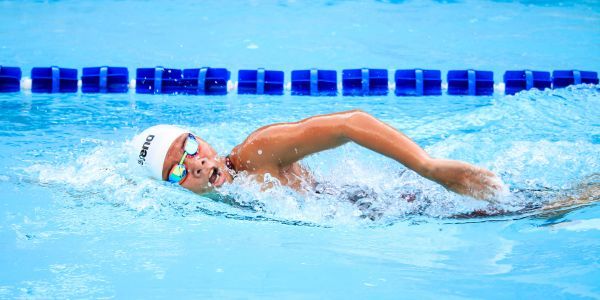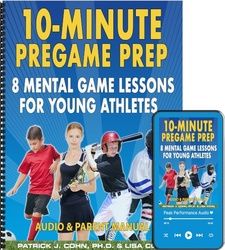Should young athletes quit or recommit to youth sports?
That’s a question that Andrew Simpson and his associates ask young athletes who may be approaching burnout.
Simpson, chief vision officer, Player’s Fitness and Performance, helped create a training program for these athletes. The program looks at ways to help athletes recognize the signs and symptoms of burnout–before they quit.
Simpson focuses on teaching that burnout is a choice that can be avoided.
“Burnout is a habit,” Simpson said during an interview for our Ultimate Sports Parent podcast. “It’s actually a choice a lot of the time because athletes, if they’re given enough time to really reflect and to pause and recognize when something’s normal or when something’s not normal, then they then can take the necessary steps to take a season off or take a day off.”
Another option would be for them to switch to a position that aligns better with their strengths.
Perfectionists are especially vulnerable to burning out in part because they don’t want to “look weak,” Simpson said.
To identify whether a young athlete is burning out, parents should keep an eye out for kids lacking spark or not getting as excited as they used to about going to practice or games, or about winning.
If parents aren’t sure whether kids are feeling burnt out, they should ask questions about kids’ interest in and passion for sports.
Parents might ask,“how’s your passion?” or “are you enjoying sports right now?” They might ask something like, “are you feeling a little worn down?” Parents might suggest that kids take a weekend break and not go to a tournament.
Parents should not decide what the athlete needs to do, but instead leave that decision to the kid, Simpson said.
If a young athlete has already decided to quit, parents might ask, “Is this the right decision? Are you running away from something or are you running to something? We teach our athletes that if you’re responding based on fear, then that never is going to lead anywhere good,” he said.
Instead, athletes need to respond to these questions from a position of strength. How would the best version of themselves respond?
Sometimes the kids simply need to redefine what success means to them. Or they need to reconnect to why they’re playing sports.
Parents might also help perfectionists reframe how they’re thinking. Rather than focusing on mistakes, the kids should think about their best moments in sports to help them avoid burnout
“If you’re reframing, you’re having them look at the situation from a totally different lens,” Simpson said.
Related Youth Psychology Articles
- How to Identify Burnout in Youth Sports
- Success Tips for Parents: Kids Who Stop Trying
- How Overuse Injuries Affect Athletes’ Mindset
10-Minute Pre-Game Prep (Digital Download)
“10-Minute Pregame Prep” teaches young athletes how to manage the expectations they feel, cope with pregame pressure, and take charge of their confidence before a game or competition–in just 10 minutes a day! 8 ten-minute audio lessons included and 8 parent manuals on each lesson. Our most popular program for young athletes and their parents.
Your kids learn many sport-specific examples of things kids should be concentrating on—the thoughts, feelings, cues, or images to focus their best.
The audio guides young athletes through eight short lessons that will help them boost their pregame mental preparation and success in sports. Your kids listen to the audio and then complete the exercises for each of the eight lessons.


